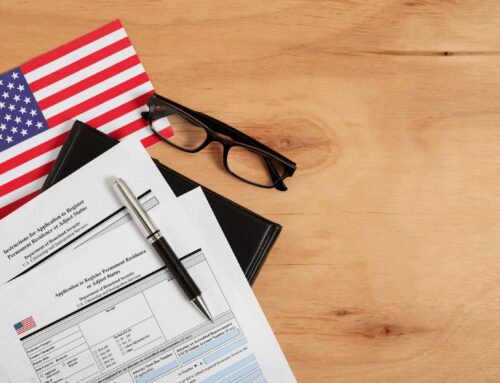At Whitaker Legal, we’re committed to keeping you informed about changes that may affect your rights, your family, and your future. A recent executive order has put long-standing alien registration laws back in the spotlight—and we want to make sure you understand what it means and how it might impact you.
📜 What Happened?
On January 20, 2025, President Trump issued Executive Order 14159, directing the Department of Homeland Security (DHS) to prioritize enforcement of alien registration requirements under Section 262 of the Immigration and Nationality Act (INA) and 8 CFR Part 264. Implementation of the registration was on hold until recently; a federal judge permitted the new registration requirement to take effect April 11, 2025.
Although these registration laws have existed for decades, this Executive Order signals that failure to comply may now lead to civil and criminal enforcement.
This blog post is meant to help you understand what alien registration is, who is required to register, and what the risks and benefits are.
⚖️ What Is Alien Registration?
Alien registration is the requirement that most noncitizens in the U.S. submit their identifying information—and in some cases, fingerprints—to the government.
Although this law has existed for many years, the current administration has made enforcement of this law a top priority.
It is important to know: Registering will not give you legal status. It will not give you work authorization, a green card, or protection from deportation. However, failure to register may lead to immigration consequences or even criminal charges.
🧾 Who Must Register?
You are likely required to register if:
- You are 14 or older, entered without a visa or parole, and did not submit fingerprints or immigration forms.
- You are the parent or guardian of a child under 14 who has not been registered.
- You recently turned 14 and haven’t yet registered.
You may already be registered if you:
- Hold a valid visa or Border Crossing Card.
- Submitted fingerprints and a USCIS form (like an asylum or green card application).
- Have a green card, work permit, or were placed in removal proceedings.
Still not sure if you’re registered? Visit uscis.gov/alienregistration or schedule a consultation with our office—we can help you figure it out.
📆 What’s the Deadline?
There is currently no published deadline. Form G-325R became available on April 11, 2025, and is used for registration.
To register:
- Create a USCIS online account at my.uscis.gov
- Submit Form G-325R online
- Attend a biometrics appointment if scheduled
- Obtain proof of registration from your account
- If you’re 18 or older, you must carry proof of registration at all times
✅ Why Should Someone Register?
- To comply with federal law
- To avoid immigration penalties
- To show good moral character for future applications
But…
⚠️ What Are the Risks?
While alien registration is legally required, it is also a government enforcement tool. Any information you submit may be used:
- To place you in removal proceedings
- As evidence of illegal entry or unlawful presence
- In a criminal immigration case
If DHS believes you willfully failed to register, you could face up to 6 months in jail and/or a $5,000 fine.
⚖️ Know Your Rights Before You Register
You do not have to answer questions that would force you to admit to unlawful entry, using false documents, or other crimes. That is your Fifth Amendment right.
But be careful—Form G-325R does not currently allow unanswered questions. That means you may not be able to skip questions that could incriminate you.
If you’re unsure, speak with an immigration attorney before submitting anything.
🛑 If You’re Approached by an Immigration Officer
- You have the right to remain silent. You can say, “I choose to remain silent.”
- Ask, “Am I being detained or am I free to go?”
- If an officer comes to your home, stay inside and do not open the door.
- Ask us for a “Know Your Rights” card—we can mail one or you can stop by to pick it up.
💬 How Whitaker Legal Can Help
Every client’s situation is different. Some may choose to register now. Others may choose to wait. Some may decide not to register at all based on legal risks. Whatever you decide, we are here to help you understand your rights and weigh your options.
Due to the legal risks involved—including possible self-incrimination—it’s important that you receive individualized legal advice.
We are monitoring ongoing litigation and will update you as the situation develops.
📞 Schedule a Consultation Today
If you are unsure about whether you need to register, or whether doing so might affect your immigration case, we strongly encourage you to schedule a consultation with our legal team.
Let us help you make the most informed and safest decision for yourself and your family.
👉 Call us at (410) 207-9272 or schedule online at www.whitaker-legal.com.
We’re here for you.





